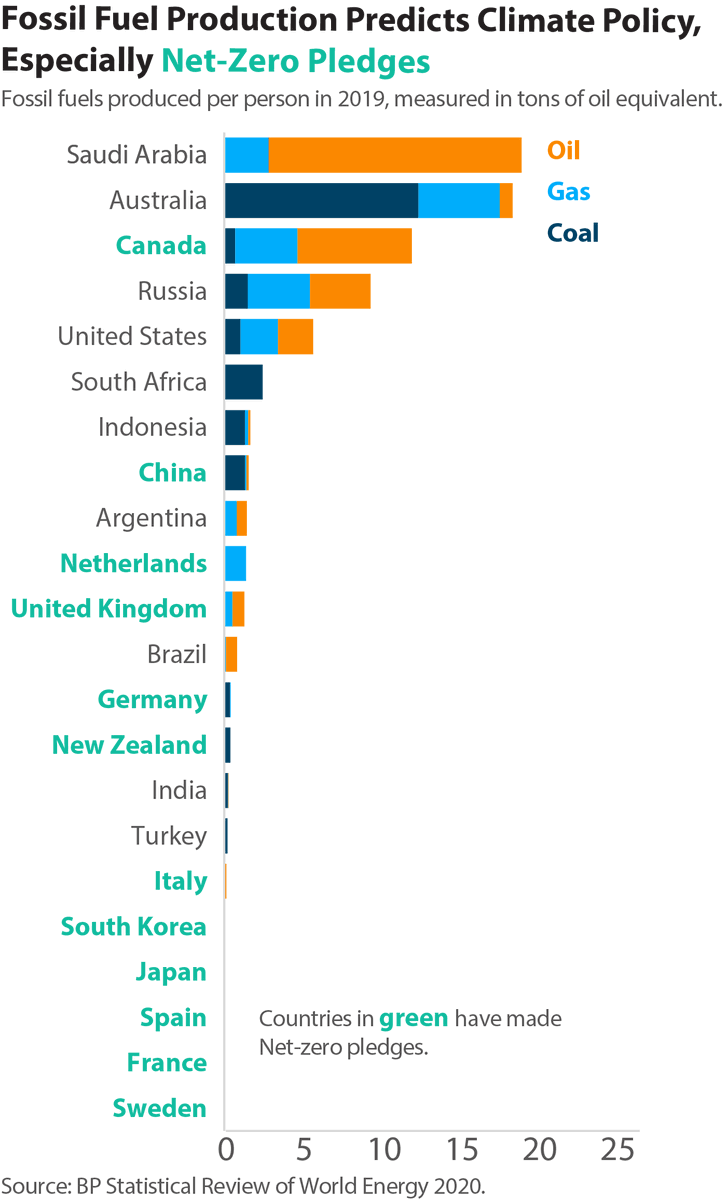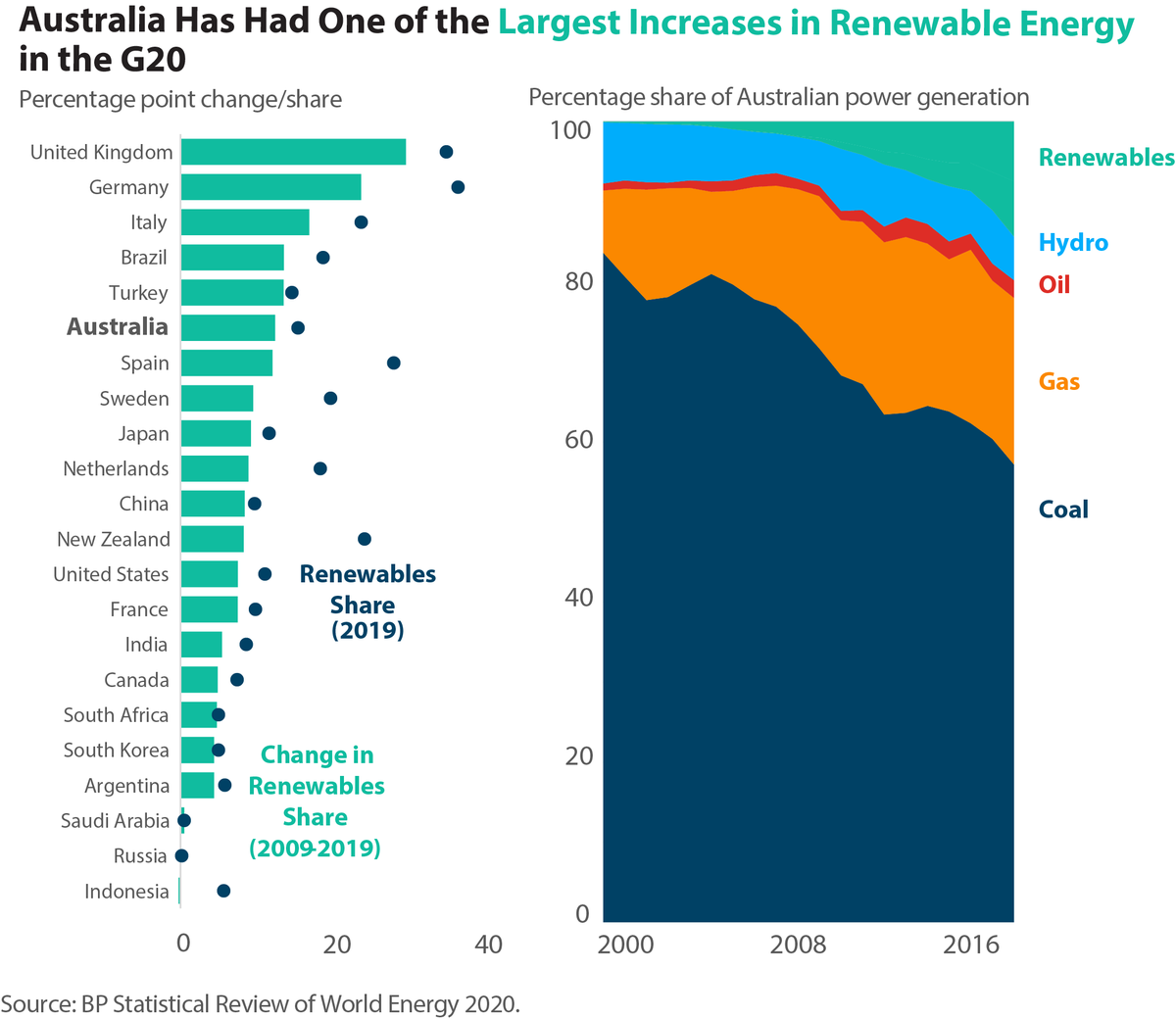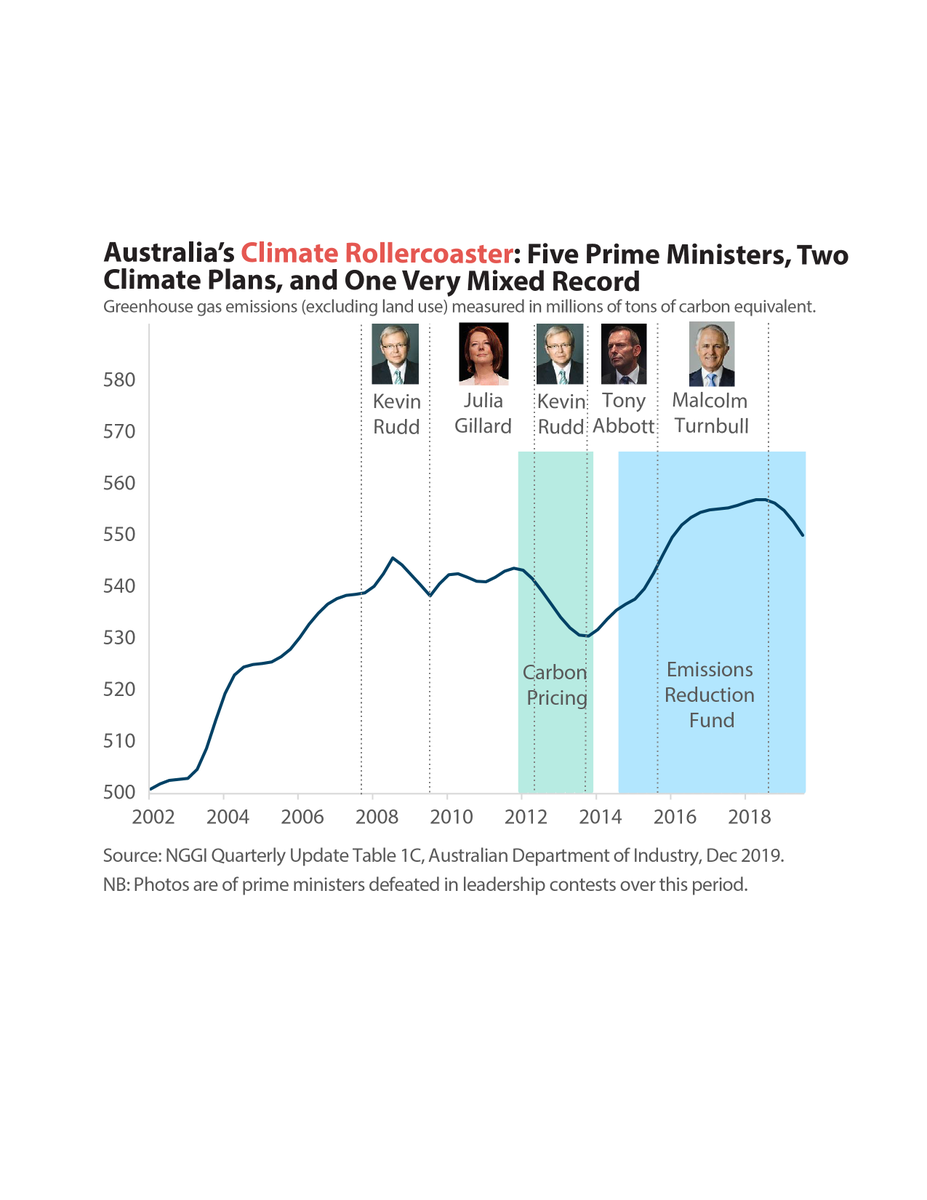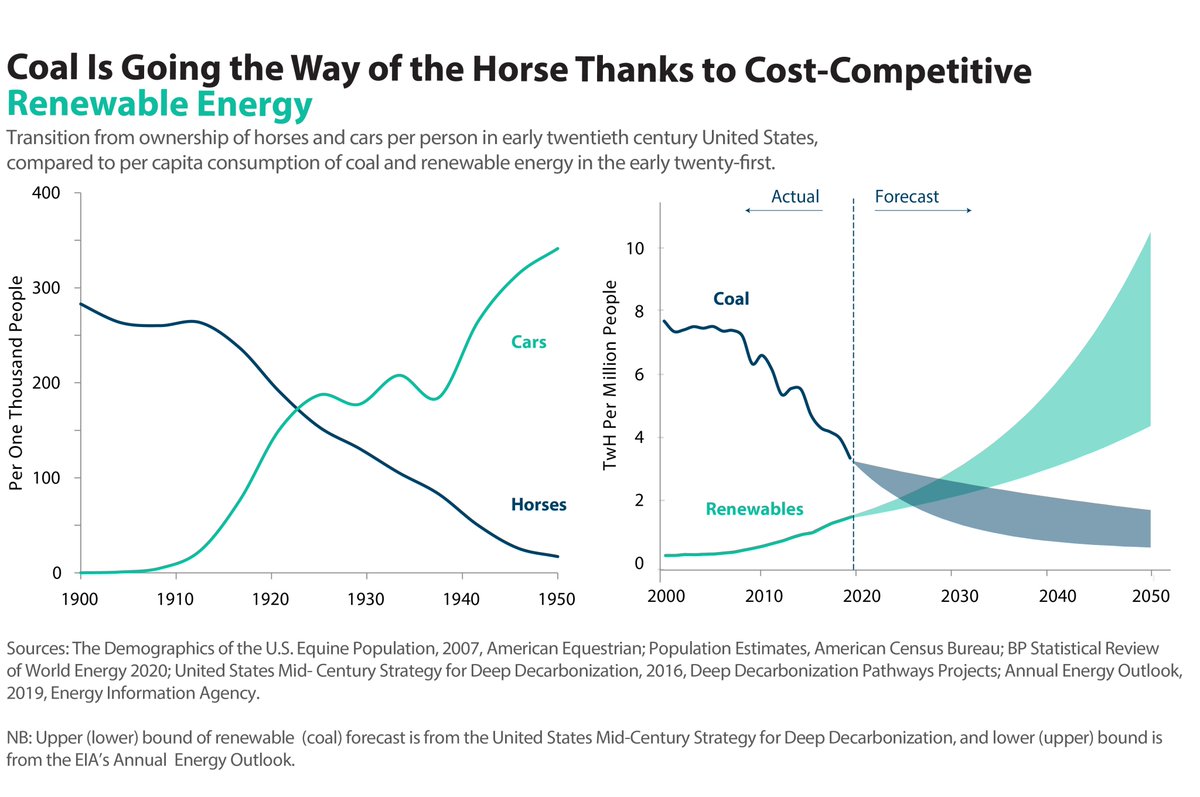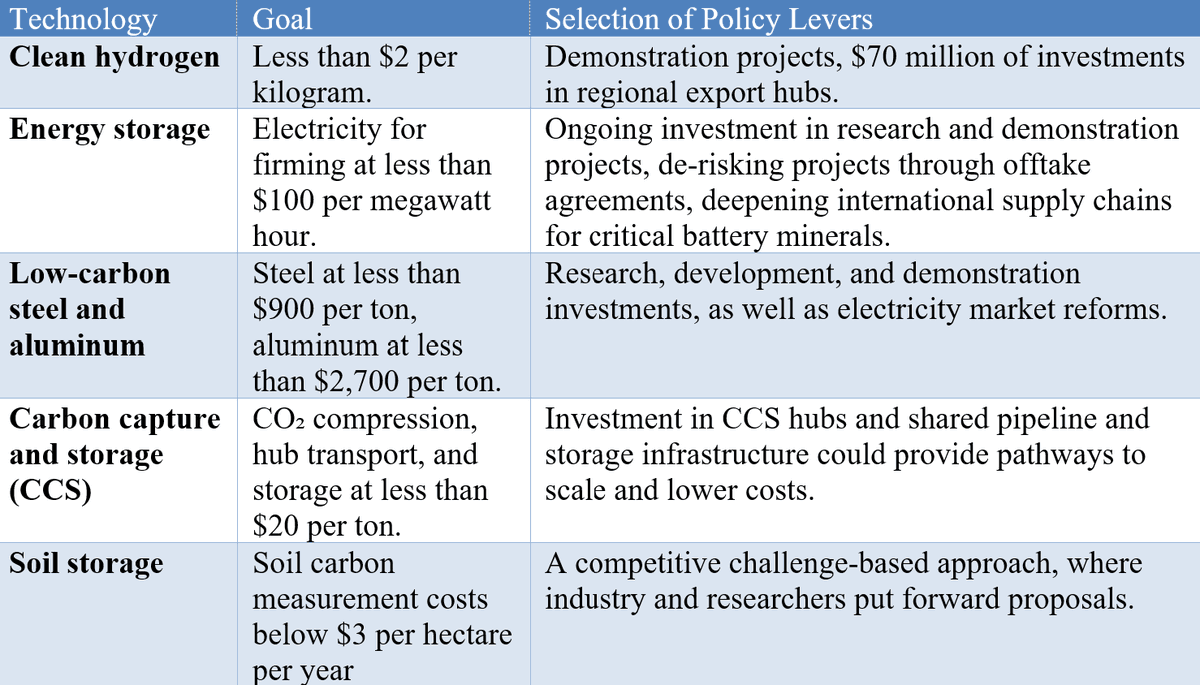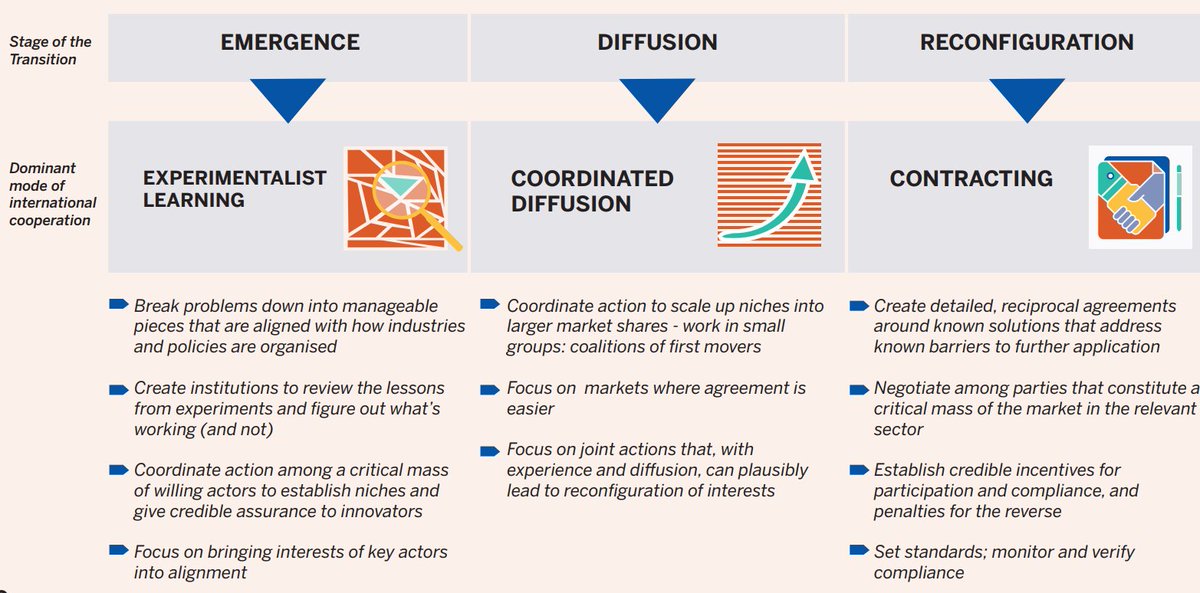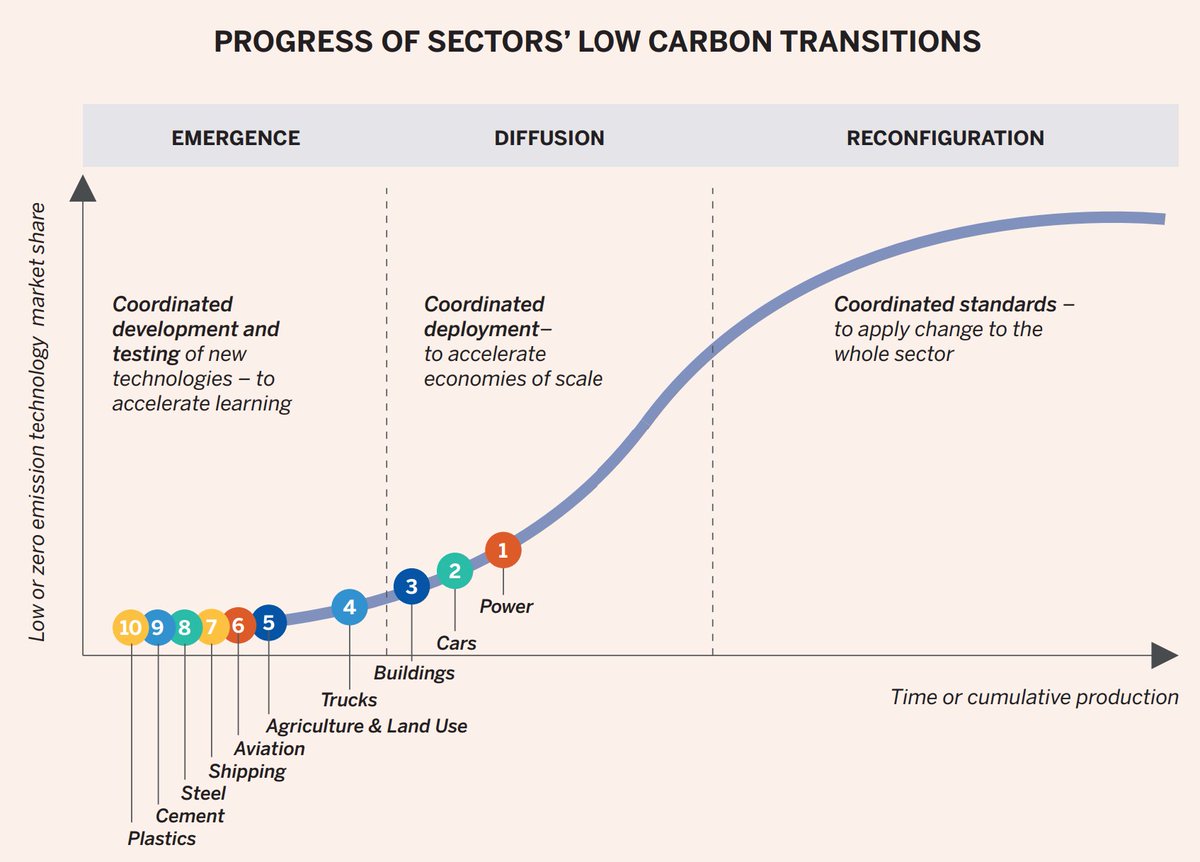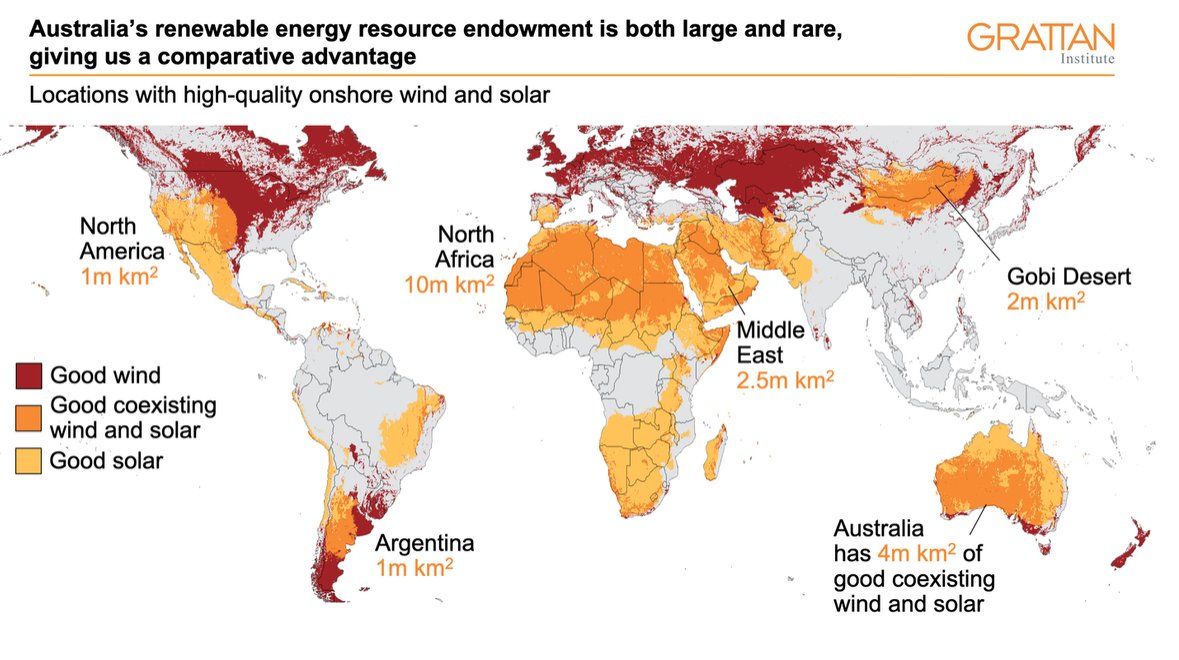1/ Since it itis the season of  takes, home sickness, and unsolicited advice to the Biden administration, I felt the need to write about what can be learned from Australia's 'technology-led approach' to climate policy. An unnecessarily long
takes, home sickness, and unsolicited advice to the Biden administration, I felt the need to write about what can be learned from Australia's 'technology-led approach' to climate policy. An unnecessarily long ... https://www.csis.org/analysis/biden-administration-should-look-surprising-source-climate-policy-inspiration-australia
... https://www.csis.org/analysis/biden-administration-should-look-surprising-source-climate-policy-inspiration-australia
 takes, home sickness, and unsolicited advice to the Biden administration, I felt the need to write about what can be learned from Australia's 'technology-led approach' to climate policy. An unnecessarily long
takes, home sickness, and unsolicited advice to the Biden administration, I felt the need to write about what can be learned from Australia's 'technology-led approach' to climate policy. An unnecessarily long ... https://www.csis.org/analysis/biden-administration-should-look-surprising-source-climate-policy-inspiration-australia
... https://www.csis.org/analysis/biden-administration-should-look-surprising-source-climate-policy-inspiration-australia
2/ Why Australia, you might ask? Seems an odd choice in a week where they were literally uninvited from the UN Climate Action Summit for not having an ambitious enough strategy... https://www.bloomberg.com/news/articles/2020-12-10/australia-excluded-from-global-climate-meeting-as-policies-lag?sref=B2BBHw9t
3.a/ The fact is the US shares a lot more in common with Aus than it does most climate leaders:
- lagging federal action
- large fossil fuel producer
- post-carbon pricing culture war
- right-of-center political majority
- politically powerful oil/coal companies
- lagging federal action

- large fossil fuel producer

- post-carbon pricing culture war

- right-of-center political majority

- politically powerful oil/coal companies

4/ Australia, like the US, is also experiencing a faster energy transition than you might expect.
Among G20 countries, Aus had the 5th fastest growth in renewable electricity over the last 10 years, and the 3rd fastest fall in coal-fired power generation
https://www.nytimes.com/2020/09/29/business/energy-environment/australia-rooftop-solar-coal.html
Among G20 countries, Aus had the 5th fastest growth in renewable electricity over the last 10 years, and the 3rd fastest fall in coal-fired power generation
https://www.nytimes.com/2020/09/29/business/energy-environment/australia-rooftop-solar-coal.html
6/ OK, so the power sector is transitioning 
But what about everything else?
This is where the new 'Technology Investment Roadmap' comes in: over $14bn in clean tech over 10 years, helping lower the cost of transitioning hard-to-abate sectors
https://www.minister.industry.gov.au/ministers/taylor/media-releases/investment-new-energy-technologies

But what about everything else?
This is where the new 'Technology Investment Roadmap' comes in: over $14bn in clean tech over 10 years, helping lower the cost of transitioning hard-to-abate sectors
https://www.minister.industry.gov.au/ministers/taylor/media-releases/investment-new-energy-technologies
7/ Now, as critics like @murpharoo, @simonahac, @mcannonbrookes, and @MichaelM_ACT @renew_economy have noted, the plan focuses “firmly on technologies that favour fossil fuels, farmers and big energy users”, nor will it reach Paris goals on its own https://reneweconomy.com.au/taylor-favours-fossil-fuels-and-farmers-as-roadmap-picks-five-technology-winners-33361/
9/ For the critics and curious alike, I encourage you to listen to our recent Energy 360 podcast w/ @AngusTaylorMP who was far more articulate, thoughtful and passionate about these issues than the 'gotchya' media coverage typically allows for: https://www.csis.org/podcasts/energy-360%C2%B0/taxes-technology-australias-new-approach-climate-policy
10/ Now, the roadmap is no silver bullet, but I see three principles we can draw from the Australian experience:
1) More carrots, less sticks - investment>>carbon prices
2) Technologies, over timelines - $$ >> promises
3) Leave a durable legacy - institutions >> exec actions
1) More carrots, less sticks - investment>>carbon prices
2) Technologies, over timelines - $$ >> promises
3) Leave a durable legacy - institutions >> exec actions
11/ First, those tasty tasty 


As Jaffe, Newell @rff and @RobertStavins wrote all the way back in 2004, climate change is a "Tale of Two Market Failures" - either you tax pollution or you invest in new technologies until they're cost-competitive https://www.rff.org/publications/working-papers/a-tale-of-two-market-failures-technology-and-environmental-policy/#:~:text=A%20Tale%20of%20Two%20Market%20Failures%3A%20Technology%20and%20Environmental%20Policy,-Working%20Paper%20by&text=Both%20theory%20and%20empiricalevidence%20suggest,the%20use%20of%20economicincentivebased%20policy



As Jaffe, Newell @rff and @RobertStavins wrote all the way back in 2004, climate change is a "Tale of Two Market Failures" - either you tax pollution or you invest in new technologies until they're cost-competitive https://www.rff.org/publications/working-papers/a-tale-of-two-market-failures-technology-and-environmental-policy/#:~:text=A%20Tale%20of%20Two%20Market%20Failures%3A%20Technology%20and%20Environmental%20Policy,-Working%20Paper%20by&text=Both%20theory%20and%20empiricalevidence%20suggest,the%20use%20of%20economicincentivebased%20policy
12/ But as @GernotWagner & @leahstokes write in their great workshop report: "the distributional impacts of climate policy invariably collide with the political economy of a given jurisdiction to constrain the real-world implementation of carbon pricing”
https://wagner.nyu.edu/files/events/docs/Carbon%20Pricing%20Workshop%20-%20December%202020.pdf
https://wagner.nyu.edu/files/events/docs/Carbon%20Pricing%20Workshop%20-%20December%202020.pdf
13/ Whereas, as @nina_kelsey, @jonasmeckling and Eric Biber write, "policies that build up interest groups that support decarbonization are more likely to be effective initial policy tools than policies that penalize fossil fuel polluters or consumers" https://brooklynworks.brooklaw.edu/blr/vol82/iss2/8/
13/ Exhibit A: Aus' 2012 carbon tax , which reduced GHGs as expected- see @GrogsGamut great work on this-but threw the country into political chaos, helping depose 3 separate PMs (one 2x) and turned climate into a culture war that divides a nation
https://www.theguardian.com/business/grogonomics/2020/jun/02/yes-australias-emissions-are-falling-but-its-a-hollow-boast
https://www.theguardian.com/business/grogonomics/2020/jun/02/yes-australias-emissions-are-falling-but-its-a-hollow-boast
14/ The Tech Roadmap is an attempt *by a conservative government* to put 'Policy sequencing toward decarbonization' in action
$$ ->constituencies in favor of climate action -> drive down technological costs ->lower barriers to action-> ratchet up ambition https://www.nature.com/articles/s41560-017-0025-8
$$ ->constituencies in favor of climate action -> drive down technological costs ->lower barriers to action-> ratchet up ambition https://www.nature.com/articles/s41560-017-0025-8
18/ Principle #2: Technology over timelines.
Admittedly, many ppl have taken these lessons to heart, and timelines have largely replaced prices as the weapon de jour. However, as @mattyglesias wrote in a suitably titled piece, "timelines aren't policies" https://www.slowboring.com/p/climate-change-is-really-hard
Admittedly, many ppl have taken these lessons to heart, and timelines have largely replaced prices as the weapon de jour. However, as @mattyglesias wrote in a suitably titled piece, "timelines aren't policies" https://www.slowboring.com/p/climate-change-is-really-hard
19/ What's surprising to me is Aus gets lambasted for not doing the easy & cheap thing (make an empty promise) and ignored for trying to do the hard & expensive thing (make investments in new technologies).
Although, there *is* plenty to criticize (NSFW) https://twitter.com/thejuicemedia/status/1337627855719559169
Although, there *is* plenty to criticize (NSFW) https://twitter.com/thejuicemedia/status/1337627855719559169
20/ As @yayitsrob writes, "the U.S. and the entire world need to pull off an energy transition that rivals anything seen in the past two centuries".
History tells us this can happen when new tech
1) is cost competitive; &
2) has infrastructure to scale https://www.theatlantic.com/science/archive/2020/12/new-visual-history-american-energy/617329/
History tells us this can happen when new tech
1) is cost competitive; &
2) has infrastructure to scale https://www.theatlantic.com/science/archive/2020/12/new-visual-history-american-energy/617329/
21/ As @GregNemet writes in his great book http://howsolargotcheap.com , solar took six decades to become cost-competitive. Thanks to the push and pull of gov policy, it is now following the trajectory of the car vis-a-vis the horse.
But we no longer have six decades to spare...
But we no longer have six decades to spare...
22/ It might not be as sexy as a 2050 decarbonization target, but the roadmap has clear 'stretch goals' for important technologies, with a variety of appropriate policy instruments attached to each.
23/ This is, quite honestly, textbook stuff. These policies and technologies could be taken straight from the pages of David Victor and Frank Geels' exceptional @BrookingsInst report - emergent tech requiring coordinated development and testing
https://www.brookings.edu/research/accelerating-the-low-carbon-transition/
https://www.brookings.edu/research/accelerating-the-low-carbon-transition/
23/ But why only hydrogen, storage, steel, CCS, and soil? Why not the rest? The simple answer: jobs
For this to work politically, it needs to create new economic constituencies. The economists' answer therefore is to focus on areas of comparative advantage - ie what Aus does best
For this to work politically, it needs to create new economic constituencies. The economists' answer therefore is to focus on areas of comparative advantage - ie what Aus does best
24/ Eg green steel made through green hydrogen. Aus has the most renewable energy potential of any country, and potential to be a future exporter of green steel. Which, as the @GrattanInst writes, could create 25,000 ongoing manufacturing jobs
https://grattan.edu.au/news/australians-want-industry-and-theyd-like-it-green-steel-is-the-place-to-start/
https://grattan.edu.au/news/australians-want-industry-and-theyd-like-it-green-steel-is-the-place-to-start/
25/ Principle #3: Institutions outlast policies.
Ironically, it is the independent institutions created under the former Labor gov that will do the heavy lifting for the Tech Roadmap.
This includes the CEFC, the world's largest green bank, and ARENA, an ARPA-E -like agency.
Ironically, it is the independent institutions created under the former Labor gov that will do the heavy lifting for the Tech Roadmap.
This includes the CEFC, the world's largest green bank, and ARENA, an ARPA-E -like agency.
26/ CEFC: > $8b in >160 investments; no material losses; all matched by >3:1 in private capital.
Further, the CEFC shows "the importance of strong legislative support that affords the green bank independence and protects it from political influence" https://rmi.org/insight/state-of-green-banks-2020/
Further, the CEFC shows "the importance of strong legislative support that affords the green bank independence and protects it from political influence" https://rmi.org/insight/state-of-green-banks-2020/
27/ to the recommendations!
1) Avoid first-best policies and big climate packages. Instead “find issues on which individual senators would benefit politically from breaking with their leadership.”
E.g. innovation, infrastructure and industrial policy https://www.wsj.com/articles/how-biden-can-break-the-senate-stonewall-11606776086
1) Avoid first-best policies and big climate packages. Instead “find issues on which individual senators would benefit politically from breaking with their leadership.”
E.g. innovation, infrastructure and industrial policy https://www.wsj.com/articles/how-biden-can-break-the-senate-stonewall-11606776086
28/
I might be making the ultimate #energytwitter booboo here and disagreeing with @drvolts, but it seems to me that a “blitz” on exec actions, might increase leverage for a piecemeal strategy of bipartisan compromise on certain carrots. https://www.vox.com/policy-and-politics/21724758/biden-transition-trump-polarized-climate-change-health-immigration
I might be making the ultimate #energytwitter booboo here and disagreeing with @drvolts, but it seems to me that a “blitz” on exec actions, might increase leverage for a piecemeal strategy of bipartisan compromise on certain carrots. https://www.vox.com/policy-and-politics/21724758/biden-transition-trump-polarized-climate-change-health-immigration
29/
2) Listen to @colin_cunliff , @ProfDavidHart , @vsiv and launch a **National Energy Innovation Mission**, which triples federal energy RD&D & & &...
Also listen to @Jake_Higdon @DataProgress who has some great recs
https://www.energypolicy.columbia.edu/energizingamerica https://www.dataforprogress.org/memos/climate-innovation-agenda-policy
2) Listen to @colin_cunliff , @ProfDavidHart , @vsiv and launch a **National Energy Innovation Mission**, which triples federal energy RD&D & & &...
Also listen to @Jake_Higdon @DataProgress who has some great recs
https://www.energypolicy.columbia.edu/energizingamerica https://www.dataforprogress.org/memos/climate-innovation-agenda-policy
30/
3) Finally, build on @SenMarkey et als National Climate Bank Act and create a $35b (minimum) Clean Energy Jobs Fund, which as @CGreenCapital have pointed out, could put 5 million Americans back to work.
/fin
https://coalitionforgreencapital.com/nearly-100-groups-mobilize-to-push-congress-for-clean-energy-jobs-fund-in-infrastructure-bill/
3) Finally, build on @SenMarkey et als National Climate Bank Act and create a $35b (minimum) Clean Energy Jobs Fund, which as @CGreenCapital have pointed out, could put 5 million Americans back to work.
/fin
https://coalitionforgreencapital.com/nearly-100-groups-mobilize-to-push-congress-for-clean-energy-jobs-fund-in-infrastructure-bill/

 Read on Twitter
Read on Twitter